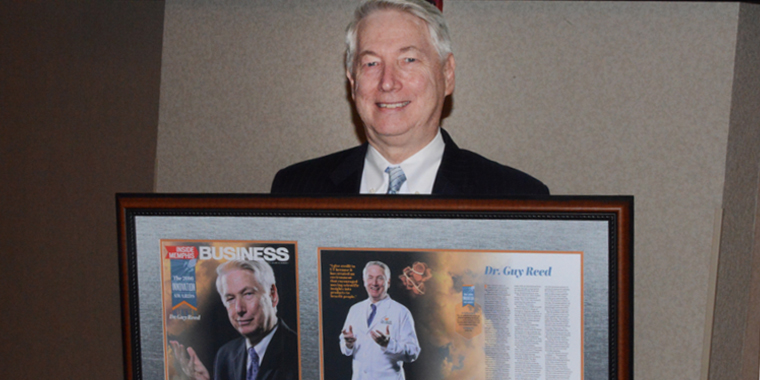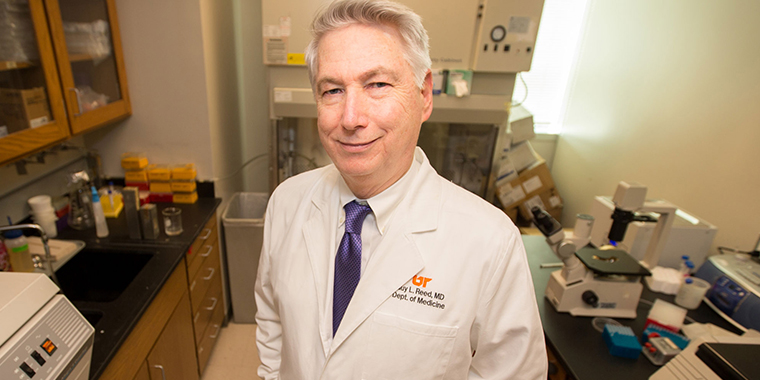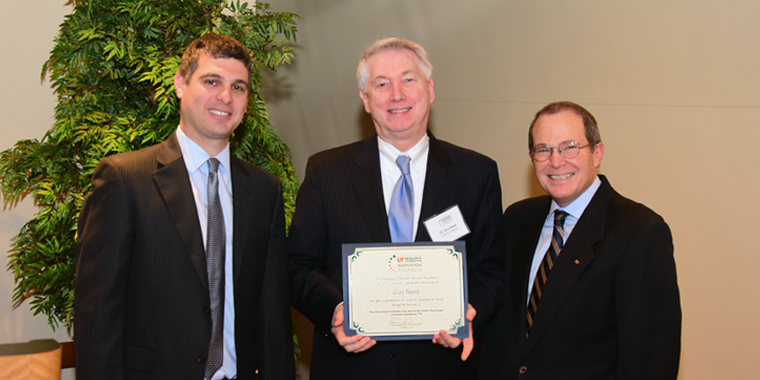



“Regarding management of the tPA technology, Dr. Reed has made my job as a technology manager easy. He is not only an accomplished researcher and clinician, but is also very knowledgeable about tech commercialization. He understands the licensing process and was instrumental in helping me to work out some of the details in the license agreement for the tPA antidote. We are honored and proud to have the opportunity to work with him, and very hopeful that the antidote will become a valuable and successful commercial product.”
Lakita Cavin, J.D., Ph.D., UTRF Senior Staff Attorney
In addition to his discovery of TS23, Dr. Reed has researched and developed a potential treatment for brain bleeding, a catastrophic side effect for patients suffering ischemic stroke. The treatment involves inhibiting the activity of tissue plasminogen activator (tPA), an enzyme that is currently used to dissolve blood clots. Treatment with tPA may cause severe or fatal brain bleeding. Dr. Reed’s studies show that an antidote that restricts the duration of tPA activity significantly reduces brain injury and bleeding. This antidote is now in pre-clinical development, has a patent pending with UT, and has been licensed for use by an English company.
Dr. Reed’s accomplishments extend outside the laboratory. Since 1989, he has secured 22 grants, including 11 National Institutes of Health and four American Heart grants. He holds 23 U.S. patents and has authored more than 90 peer-reviewed publications. He was also one of four recipients of the Inside Memphis Business magazine’s 2016 Innovation Awards.
Dr. Reed is quick to credit the supportive environment at UT that enables researchers like himself to translate their scientific insights into products that can improve health outcomes in patients. He credits UTRF for helping to reduce the challenges that are often associated with bringing ideas from the lab bench to the marketplace.